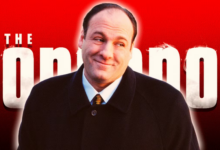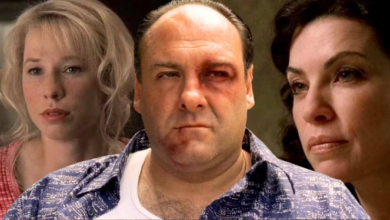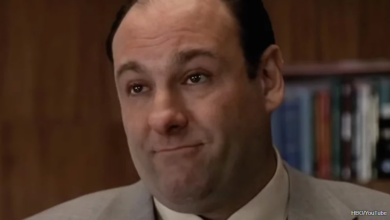Why There Was Never Going to Be “The Sopranos” Season 7, Explained
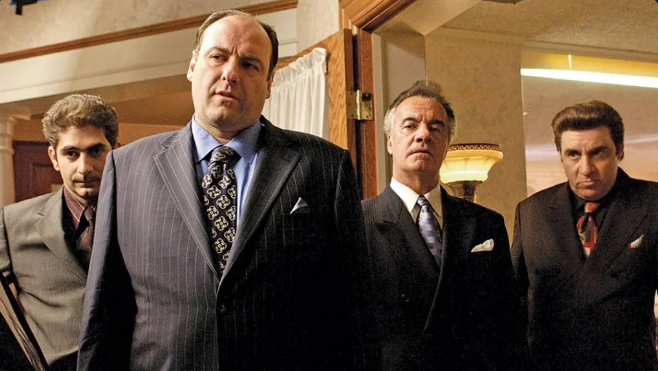
The reason why The Sopranos ended after season 6: a look at its ambiguous series finale and how the creator came up with its famous ending.
The Sopranos is one of the most critically acclaimed TV shows in history, ending its grand run in 2007 with season 6. Throughout its run, it set a benchmark for how crime drama series were supposed to be, enticing, chilling, exhilarating, and exasperating all at the same time.
Led by James Gandolfini as mob boss Tony Soprano, its finale still continues to spark debate and speculation despite all this time. A drama that ran successfully for six seasons, blending themes of brutal crime with deep psychological and family themes, The Sopranos was never destined for a seventh season it seems.
The creator David Chase always had a clear vision of how the series was supposed to end despite the common belief that HBO might have something to do with its end. The series apparently had run its course and had reached its peak, so continuing it would have potentially negatively impacted the narrative.
As fans continue to revisit the world of The Sopranos, here is why a seventh season of the hit series was never in the cards.
Why The Sopranos Ended After Season 6?
David Chase‘s The Sopranos basically changed the history of television in terms of the crime drama genre by attempting to create a daring and bold series and a protagonist that continues to behold audiences even today. Starring James Gandolfini as Tony Soprano, a New Jersey-based Italian-American mobster, the series shed an interesting light on the world of organized crime and how it impacts one’s family life as well as mental health all the while remaining true to its crime drama genre.
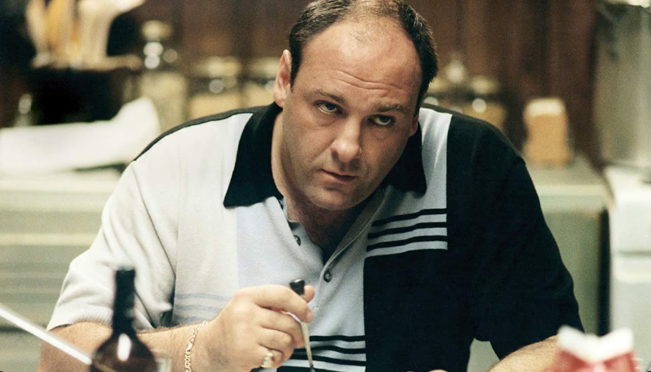
Debuting in 1999, many have wondered why the show ended after six seasons despite enjoying a high viewership and ratings. While some believed that HBO might have interfered, it was really the creator Chase’s decision to end the series when he did. Having drafted an impeccable finale, that continues to be talked about, it only felt right for him to end Tony Soprano’s tale in that infamous ambiguous way.
Yet, this does not mean that HBO did not interfere in the run of the series, for early on the creator Chase did not originally plan to keep running the show for more than a second season. Alan Sepinwall and Matt Zoller Seitz’s book The Sopranos Sessions (a collection of interviews) reveals that since the production house offered a hefty pay rise to both David Chase and the cast, the series was renewed for future seasons. By the time it came to its fourth season, the creator remarked,
I thought I had more to give The Sopranos. I wasn’t ready to give up. I was feeling really good, and I wanted to keep doing it.
And he did keep doing it, resulting in two more seasons. In an interview with The New York Times, the then-chairman of HBO Chris Albrecht revealed that after the fifth season of the series won the Best Drama Series Emmy, Chase was really reinvigorated. And so instead of producing ten more episodes, over 21 more episodes were to be filmed in one running production cycle.
These episodes premiered in parts, first in March 2006 and then later in January 2007, leading to The Sopranos finally coming to an end. Instead of the series coming to an end due to falling ratings and viewership or cancelation, its conclusion was more organic and natural, giving a befitting end to the overall tale without compromising its narrative richness or making it cheap.
David Chase Revealed One Season Three that Scene Set the Ending of the Series

David Chase has always been meticulous when it comes to his crime drama The Sopranos. While from the outside it might seem like just another crime drama detailing the truths of organized crimes and crime bosses, the HBO series, at a closer look, is so much more. Apart from the exploration of the bad, the ugly, and the alluring side of crime, it is a complex character analysis of Tony Soprano, his family, and the web of moral ambiguity they reside in.
And its much-talked-about end, which featured Tony and his family eating as normally as they could at a diner before the screen goes all black, is just one example of Chase’s brilliance as a showrunner. Although the end failed to reveal if Tony survives, throughout its build to the finale, one can notice the theme of death being evidently placed around in the narrative. Thus, hinting that perhaps the crime boss met his end as the screen went all dark.
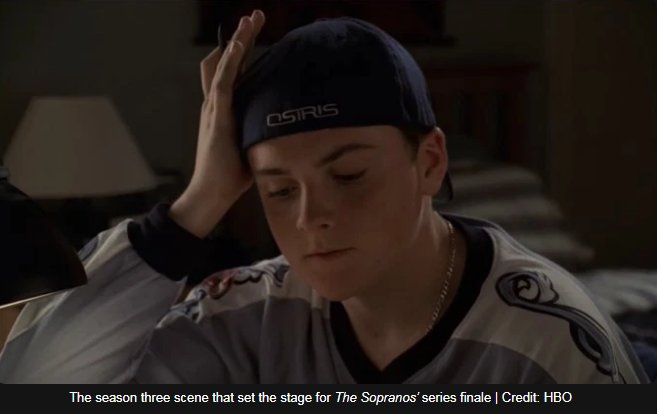
Chase, in the documentary Wise Guy: David Chase and The Sopranos, revealed that the end was a reference to a scene that took place in season 3, which ultimately, indirectly, set the stage for the finale. In season three’s second episode, Proshai, Livusha, Tony’s daughter Meadow is seen helping her brother AJ with his homework— an analysis of Robert Frost’s Stopping by Woods on a Snowy Evening.
The scene features AJ thinking about what the famous poem represents, to which Meadow asks him What’s covering the field? When he replies snow, his sister again asks what is the symbolism of the snow. Not understanding clearly, AJ replies Christmas, to which his sister promptly states Hello? Cold, endless white, endless nothing. Death! Stating that this is what was going through his head while crafting the finale, Chase noted that it might make people think that Tony is dead, yet he leaves the ending open to interpretation.
The Sopranos Original Ending Was Initially Different
The more we think about The Sopranos ending the more things become clear as well as ambiguous at the same time. The setting and environment of the diner, the family coming in to dine, Tony selecting Journey’s Don’t Stop Believin, Meadow running late, and the sketchy guy in a Members’ Only jacket, every little detail makes our brain itch in an anxious way. With each passing moment, anticipation keeps building, making us believe something big is going to happen soon, yet it all seems the most normal and natural scene in the series at the same time.
As with each time the door of the diner opens, Tony looks up, until finally he looks up for the last time before the screen goes black forever. As indefinite an end as the series itself, one can’t help but question what this blackness means: Tony meeting his inevitable death or a life goes on moment? Although we might never get an answer to this question, David Chase once revealed this was not the ending he had initially planned.
In an interview with The Hollywood Reporter in 2021, he remarked,
Because the scene I had in my mind was not that scene. Nor did I think of cutting to black. I had a scene in which Tony comes back from a meeting in New York in his car. At the beginning of every show, he came from New York into New Jersey, and the last scene could be him coming from New Jersey back into New York for a meeting at which he was going to be killed.
This was what he had in mind, but ended up changing it since it didn’t feel right. In the same interview, while talking about the aftermath of the airing of the series finale of The Sopranos, Chase remembers being annoyed with the fan reactions.
They wanted to know that Tony was killed. They wanted to see him go face-down in linguini, you know? And I just thought, ‘God, you watched this guy for seven years and I know he’s a criminal. But don’t tell me you don’t love him in some way, don’t tell me you’re not on his side in some way. And now you want to see him killed? You want justice done? You’re a criminal after watching this shit for seven years.’ That bothered me, yeah.
And so, in some indirect, crude way, the creator’s love for the character ultimately ended up being channeled in the series finale. While many continue to be bothered by it, seeking answers to questions that remain unsolved, there is no denying that The Sopranos remains a cultural touchstone, revered by new and longtime fans alike. Continuing to stand the test of time, aided by the rise of streaming platforms, its themes of power, identity, and the struggles of the American dream remain as poignant as ever.
